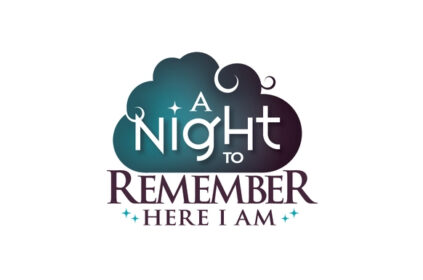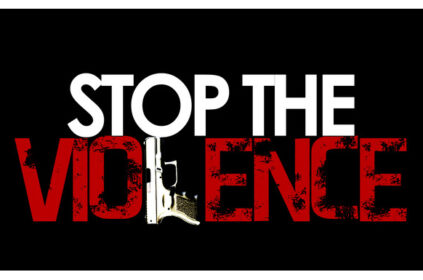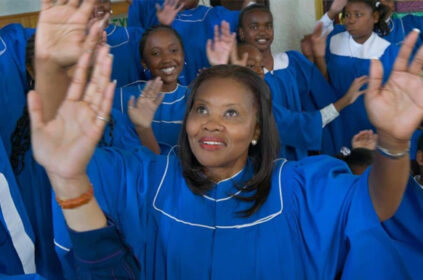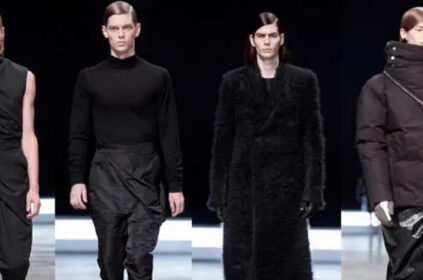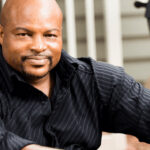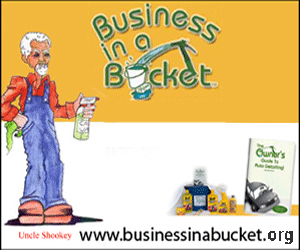Interviewed and written by Elder Lee M. Harris, Sr.
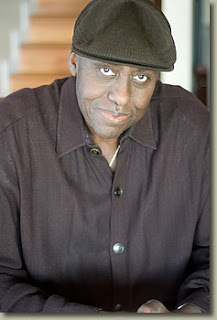
The racial lines between who we are and who we want to be or become can sometimes confuse our way and process of thinking. The person God made us and who society has programmed us into suiting their approval has truly damaged and pained many hearts.
Growing up in a world where we have been tuned in and programmed to believe that people of a darker skin complexion is not worthy of the best God has to offer is absurd! During the many years of slavery and even until this day people of color are being made to feel less qualified, less wanted and less beautiful than people of lighter skin complexion. Much of this way of thinking began at a very young age and society is not trying to change this, but is trying to enhance it on every level.
Actor Bill Duke has given us, “Dark Girls,” a documentary which displays awareness of this problem with the intent to open the eyes and strengthen the self-esteem, self-consciousness and self-worth of those who have weakened. Whereas society, Hollywood and the media as a whole has separated the desire for the opportunities for the darker skinned, it is very important to be happy with whom God has made us.
Bill Duke is on a mission to bring this documentary to the forefront and needs your help so the world can see and help change its negative way of accepting others. I had a conversation with Bill giving him the opportunity to talk with you, the reader, about his much needed film, “Dark Girls.”
Elder Lee M. Harris, Sr.: Tell me a little about yourself Bill.
Bill Duke: I was born in Poughkeepsie, New York, February 26, 1943. I lived there until I was maybe eighteen years old. I then attended Douglas Community College. Then I received a Martin Luther King Scholarship and attended Boston University, where I received my bachelor’s degree. I then moved to New York City where I followed my mentor Lloyd Richards, who was one of the first black directors on Broadway. Richards directed “Raising in the Sun” by Lorraine Hansberry.
I then earned my first master’s degree at NYU School of the Arts and I followed Lloyd out to Los Angeles and stayed. Richard then went back to New York while I was here pursuing my career in acting and stage directing. I was very fortunate to land a few jobs in Movies like, “Car Wash,” with the great Michael Shultz, and Ivan Dixon. Then I got a show called “Palmerstown U.S.A.; it’s co-produced by Alex Haley and Norman Lear. Due to the nature of the business, Ivan worked two years after that. So as a result, I decided that I would get over my fears of film and applied for the American Film Institute, and got in. I was there for two years. I received my second masters at AFI and started directing films after that.
Later on I directed a film called, “The Hero,” which was a short film. After that, I filmed about the labor unions in the 1900’s. I continued to do films after that and just wrote my career. I took a lot of challenges, but thank God I was able to survive them and get in the business.
EH: After looking at other movies since then, with you playing such a serious character, I wonder are you really as serious a guy as the roles you play?
BD: Not really. I love humor and I think that’s part of my personality. In those days, and I’m six feet five, if you were black and big you were not allowed to play not a gladly or platinum ceiling, in terms of the roles you could play. I think I scared a lot of people with my size and just being dark skinned, but I’m a person who laughs a lot. The media at that time saw me as threatening.
EH: If you smiled it didn’t look to me that I knew if you meant it or not, but if you growled then I would know what you meant.
BD: You’re right (laughing)! It worked out well, no complaints.
EH: I feel there is something sensitive you were feeling when you came up with this entire idea or intake on “Dark Girls.” This is concerning a situation that has been out there all our lives. I really admire you for doing this, because it needed to be done.
BD: Thank you very much for that! It just came out of a number of things through observing the fact that there are a lot of dark skinned people in my family. I was observing what my sister went through along with my nieces, nephews, uncles and aunts and other people, because of their regard to complexion. What I and friends also went through being darker complexioned just said, “they never had a voice.” This film is created to give a voice to the voiceless. There are a lot of people who suffer from not only racism from outside entities, but from within our own communities with colorism, which is the preference of light over dark.
We actually had two things in the forties, fifties, sixties and seventies which was called the “brown paper bag test,” where there are certain organizations you could get into if your face is measured to a bag. If you were darker than the bag then you couldn’t get into the club. Up in Harlem they had the snow and blow club, where if your hair didn’t blow in the wind and your skin wasn’t almost as white as snow, you were rejected from the club also.
That’s disturbing enough, but today if you look at my file there’s a little girl who took this test a couple of years ago who is asked to look at five dolls. The little girl was asked ‘which is the prettiest doll of the black, brown, white, yellow and a little pale.’ She pointed to the white doll. They asked the girl why was the doll pretty and she said, “Because it’s white.” When they asked the little girl, which doll was the ugly doll, she pointed to the black doll, which was the same color as her skin. When they asked her, why was she calling the doll ugly and stupid and she said, “Because the doll is black. Now this is not fifty years ago, this is today. So, these are the things that have to be healed. So in terms of media, media is a very powerful tool.
In a sense of this topic we’re talking about commit two sense, and one is a sense of commit where you actually commit to an idea that you call somebody ridicules, funny or clownish because of how they look. They are put in roles that are buffoonish like the whole Amos and Andy syndrome. If you’re laughing and giggling and acting like a fool with your pants below your butt, or killing each other and you get in a movie and are making those kind of movies, then you’re committing.
The sense of omission is a bit more insidious, because whenever there is a more positive hero, a nuclear family or something positive, there’s nobody there that looks like you. Those two sense, they’re combined together have an impact on young children’s minds. Bill Cosby tried to address it with his show, and in the seventies were other shows where there were similar kinds of messages. Today you see comedy, but you don’t see any serious addressing of these issues. So, I decided that I wanted to create a vehicle to at least discuss this matter so maybe some healing could take place.
EH: So, is there any particular reason Bill why you chose Black Girls and not Dark Boys or other particular people?
BD: Well, there are several projects, one is called, “Dark Girls”, another is called, “Yellow Gals”, the next is called, “What is a Man?” and the other is called, “What is a Woman?” Those films address the issues one at a time. We wanted to be very specific in calculating, in terms of, addressing these things when we have like seventy minutes to address it. We wanted to attack each issue and examine it from a media standpoint; sociological, psychological, psychiatric, quantum physics and global perspective. To do that takes time. We decided to focus on just this one this time, but we have other documents that we’re putting together that address all issues.
EH: I see here that the young girls and older women are talking about their personal feelings about this whole thing, because it’s an inside job; something we grew up with inside of us causing us not to like ourselves very much, because of our skin complexion. That’s like a disease to me. Is there anything that we can do by listening to these ladies to help forward what they’re saying about their feelings to change anything?
BD: We can really create curriculums in school that really talks about these issues. In one of the audiences we have chosen Q & A’s. We screen our film in different parts of the country and a lady who was black got up one night and said, “Why are you airing our dirty laundry?” I told her, “Because it’s stinking up the house!” The fact of the matter is, that as a people we have a tendency that some of the grievous things that are happening to us we don’t talk about them. We don’t address them. We act as if they are not there. As a result, they cancerously grow into virus. We have to stop it because we’re in a crisis as a culture. The boogie man does not care if you believe in him or not, he’s just going to catch your butt and eat you! Black folks have a tendency to say, “Oh well, President Obama is in office so racism is a thing of the past,” or these kind of absurdities. Statistics are that one out of every four black men in Washington, DC is HIV positive, okay! Out of all the Aids cases in America 75 % are black women. Grandmas in many of our communities are 32%. In many high schools 40% of our children are dropping out before they graduate without a high school degree in a global economy. Don’t you think we should have some concerns?
EH: Yes we should, I totally agree with you!
BD: But we’re not! I talk to people and they tell me, “Well you know it’s going to be resolved” and I’m saying, “by whom?” The government is not going to resolve it, the state is not going to resolve it, and I’ll go further and say this, “In most cultures, they save themselves. The leaders of those cultures are the men!” Why aren’t black men stepping up and caring enough about their own children’s culture to do what every other culture does?
EH: Well, you won’t get an argument out of me, because I totally agree!
BD: I’m perplexed you know, but we’ll blame everything in the world such as slavery, the economy, and oh my God, we are good at blaming, accusing and it’s very disturbing.
EH: Bill, we see this all the time, whites wearing their pants below their behinds, tanning and trying to get a darker skin complexion, listening to the soul and rap music while bopping to the beats, eating the normal class of soul-food eaten by most blacks growing up to the point where it appears that whites really do admire or even may want to be black to some degree. Why would you say it is, that although, we see their desires toward things of a black nature. Do blacks still look down on themselves and other blacks?
BD: I think that there is no self-regard. I guess Willie Lynch is very successful in what he did. There was a joke on the internet recently and it was supposed to be funny, but it wasn’t funny to me, where the head of the Klu Klux Klan was on a stage and I would say at least a hundred Klan members were standing before him and tears was just flowing from the stage. The Klan members were just taking off their hoods and their robes. The head Klan was repeating the title, “We boys, I guess they don’t need us no more because they are doing it to themselves!” That was supposed to be funny, but it wasn’t funny to me!
EH: But it’s true!
BD: It’s sad!
EH: “Dark Girls”, what would you like to see come from this documentary?
BD: I would like to see a dialogue created; I would like to see parents began to take on a responsibility of letting their children know that God does not make mistakes and that their little babies are beautiful no matter what color they are. No matter how big their noses and lips are, they are beautiful and that their hair is fine. They do not have to meet some fashion industries standard of anorexia that says ‘you’re beautiful and if you’re not that then you’re ugly.’ It’s a parental responsibility. In addition, schools and society has an obligation and so does the media. Media has to be involved in terms of being more inclusionary and start putting more dark skinned black reporters on the news and more dark skinned females and men as movie stars. Why is it that all the beautiful women of the athletes all look the same? It’s almost like a programmed society, like following something that is not for our benefit, but we continue to do it. I guess it’s easier to be depowered by that reality than to have the courage to stand up for the future!
EH: Bill, It’s always reminded me of a monopoly game where you have a group of individual people that actually push the pawn around the board to come up with this thing. Based on the way we sometimes act and carry ourselves, such as, whether we like gold or silver, the big wheels on our cars and the thing we normally go for instead of against, I truly see this monopoly game being played. I feel that the people holding the pawns are well versed on what we’re capable of doing. That’s a big fear of blacks. The pawn movers are winning, what do you think?
BD: I hate to use this word, but I think it’s a game of cowardness; I think until we have the nerve to stand up to really fight for the future of our children, we will be treated in this manner and we will continue to treat each other this way. It’s almost comical. During the L.A. Riots one of the things were that blacks would burn up their own neighborhoods and come up Crenshaw Blvd., and then to Olympic, but never came to Wilshire Blvd. They did this because they knew that was not their territory. If they put those businesses in danger, that’s where the real fight would take place. No one stopped them from burning their own businesses and homes down. It’s interesting that blacks were very obedient. So, what happened to our courage in terms of causing problems on Wilshire Blvd?
EH: That’s deep!
BD: That’s what’s disturbing. We don’t cross Wilshire Blvd.
EH: The same thing takes place all over this nation, having the nerve to do it to your own and not having the nerve to go elsewhere.
BD: Self-hatred is something that’s predictable, like you will beat your wife, children and molest your daughter and all of these other things. There are very few punishments for that, but Emmitt Till is an example if you do it outside your race. Once you see that, since you’re a coward, you will continue to hurt your own family and do bad things to your own women, but that’s where your limit is.
EH: Are there ever times when you feel alone in this fight?
BD: The thing is that if you speak up then you’re isolated. We all have to compromise in this life to a certain extent. What’s disturbing is that if we do not stand up as men to a greater degree, our young boys are watching us. It’s interesting that I have a daughter and if you have children you will always notice that no matter what you tell a child, they do what they see you do. You can say, “Don’t sit in the sun, because it’s bad for your skin.” If they see you sit in the sun every day, then they are going to join you sunning at some point. So, it’s almost like we’re all on a beach and someone is running down the beach in a Paul Revere fashion and they’re saying, “There’s a tsunami coming!” and we all look and there’s this big wave which is about a mile away. We can see the top of it as it blows the sand on the beach a bit and we still have time to get off the beach and go to the higher point. Me personally, I’m getting in the vehicle and I’m going to say, “Folks, I’m going to the mountains and anybody who wants to join me let’s go now but, I’m not waiting!” There are some people that when you tell them the Tsunami is coming, they will say to you, “Yea thanks, could you pass me those Jordan’s?”
EH: Can’t see the forest for the trees!
BD: Well, you can lead the horse to water, but you can’t make him drink! I love the old folk sayings; every shut eye ain’t sleep, every dog has his day, and every good-bye ain’t gone, (laughing).
EH: The documentary, you are trying to raise a particular amount of money. How is that going and how are you requesting that donation be done?
BD: Go to officialdarkgirls.com and hit the donation button. We’re putting our own money into this project. The thing they will tell you in this business is that you never put our own money into these movies. The second one called, “Yellow Gals” and the third one called, “What is a Man.” We’re putting our dollars into it also. Our funds are being drained. We need help. Anybody who wants to donate dollars can go to that site and it goes to PayPal and it goes to helping getting, “Dark Girls” distributed and the next films we’re putting together. We tried to get investors and they were scared of the topic. So, we got tired of begging. But guess what? “We’re going to do this!” Now we’re trying to go around the country and have screening, and get our investment back and also talk to people about this topic. We want to get the topic in curriculums in schools who will listen. We are trying our best to do whatever we can to not just have a film, but to have a movement in the sense that some of these young people who are suffering today will have a voice.
EH: I think what you’re doing is just absolutely wonderful, because it shows that somebody cares enough to try and make them realize that “You are somebody!” I just want to say this as a statement and not a question, but my mother was a bright skinned woman and my father was a dark skinned man, and so am I. I have one brother that is a little darker skinned than I, and I feel he has felt a little different over the years. So, I have some firsthand experience at what you’re talking about. I do see how this could damage the way a person feels about themselves by not understanding just how beautiful they really are.
BD: I think you’re right on target, because when you don’t have self-value and self-worth, it’s hard to pass it on to your children. Again, I think media is a very important tool, so we have to start reinstalling these values of worth and let people know that God did not make mistakes. Whether we’re light skinned, dark skinned, yellow, brown or whatever, it makes no difference because you are a product of our creator. For a business for beauty to say that you’re not and for you to believe it, then someone has to intervene and say, “No, no, your hair is okay the way it is, your darkness is fine, and I have proof, because the people that are telling you that you’re not is getting their hair crinkled, spending three days a week in tanning salons, getting butt lifts and Botox lips!”
EH: But would love to have yours!
BD: Yes, yes! That’s the mythology of what they buy into. As a result, it’s a losing battle for us, because all women are never going to be anorexia and pale skinned. It’s not going to happen.
EH: I feel I know now why you chose this particular mission Bill that I also feel was just for you.
BD: I’m appreciative of your support and we’re trying our best to get the message out there. Thanks for your help! We think it’s a viable important message. We just have to make sure that the children, women and young men know that someone cares about them out here, and to remind them of their value.
EH: You’re very welcome Bill and I will say that it’s not often that I talk to people in Hollywood that are willing to stand because most are trying to protect their jobs, don’t want to get blackballed and all. What you’re doing is not a bad thing, nor, is it anything against anybody. You’re just following your heart, so I’m sure God is involved all the way through it. You definitely have my prayers!
BD: I do appreciate that, so please pray for us, we’re trying our best and God bless you for your support. I really mean that!
For more information about Bill Duke visit www.billduke.com
Entertainment Exclusive Interview
Last modified: April 24, 2023

